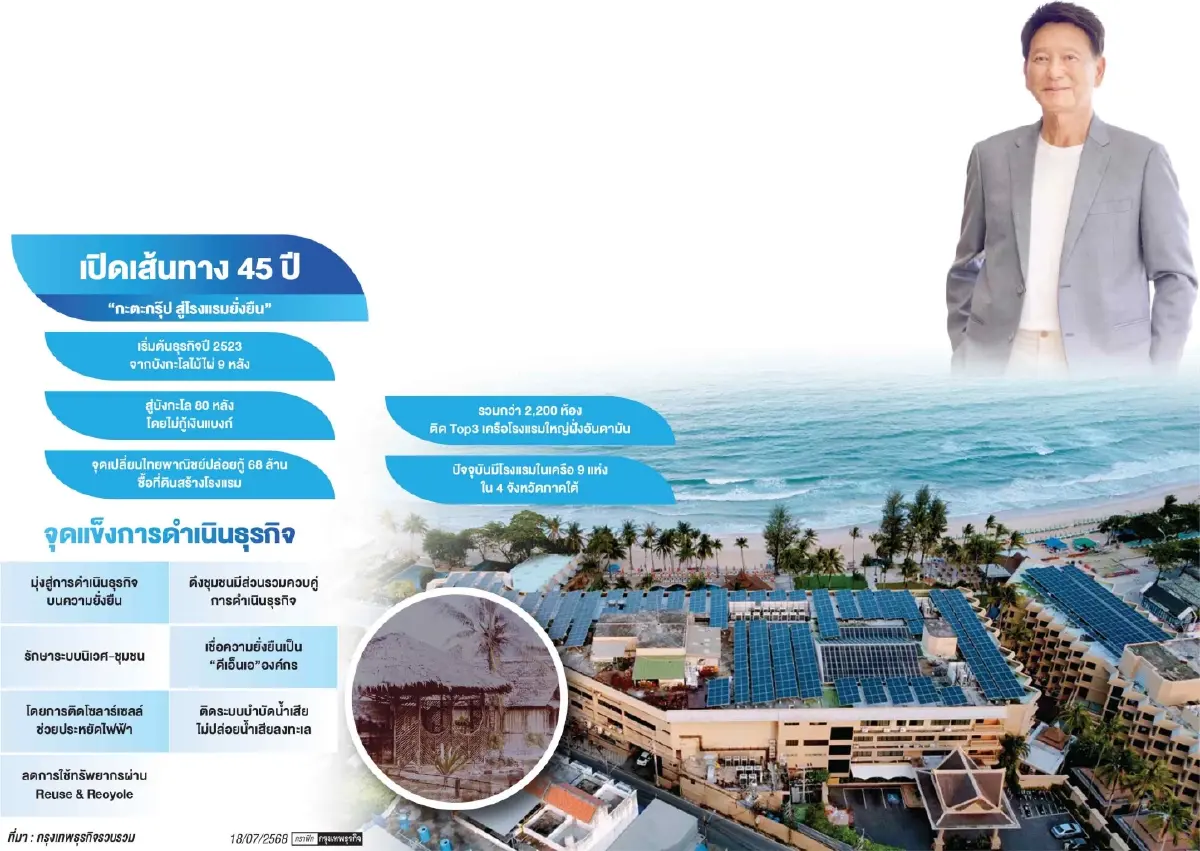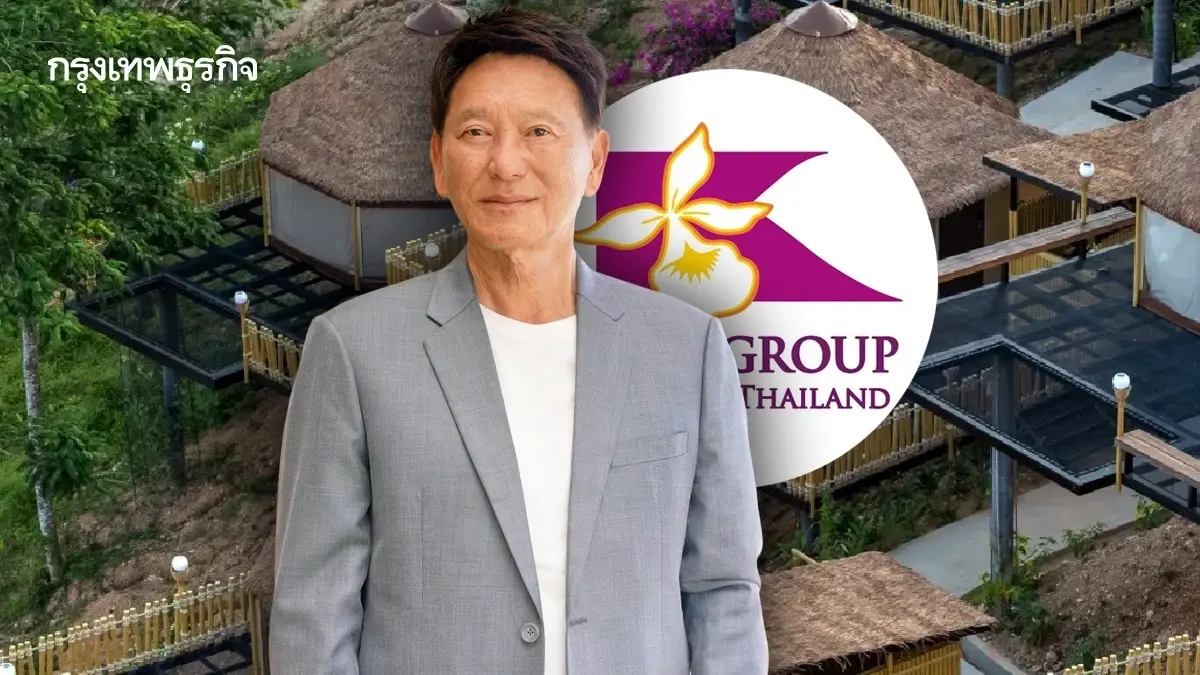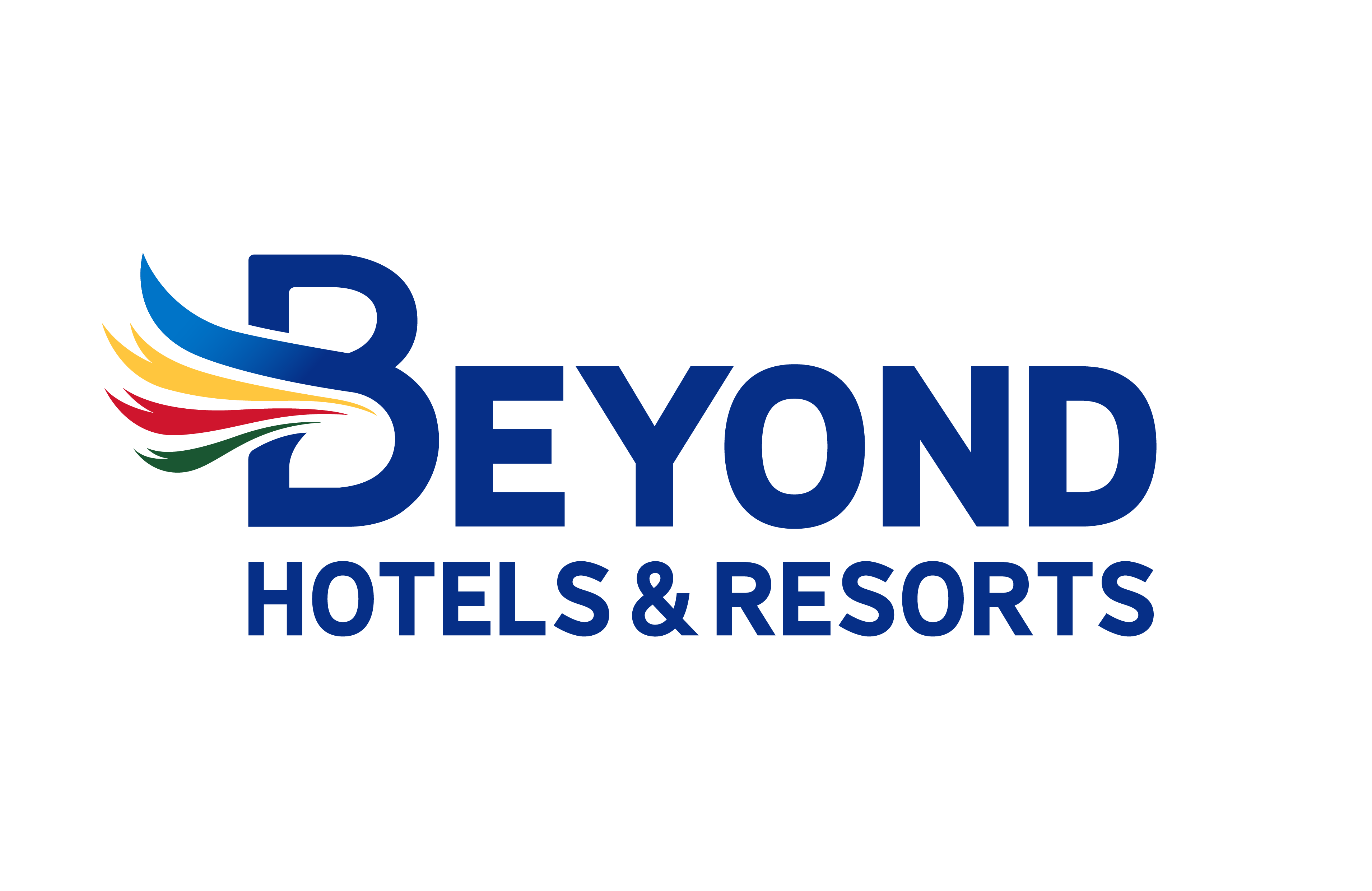
From Bamboo Bungalows to Sustainable Sanctuaries: The 45-Year Journey of Kata Group
The origin of 'Kata Group' was the construction of nine bamboo bungalows on Kata Beach. Today, it has grown to encompass nine hotels with over 2,200 rooms in four southern provinces.
Kata Group attributes its present-day success to its nearly 40-year financial partnership with SCB. The group emphasizes sustainable business practices, earning it the prestigious "Green Hotel Gold Class" award.
Looking ahead, Kata Group's future goals are to expand its business to an international level and to actively promote Phuket as a sustainable tourist destination.
The Kata Group Resorts has a clear and serious environmental policy, adhering to the principle of "Not just good accommodation, but a commitment to building a better world." This reflects a responsibility towards nature and society in every dimension of its business operations. This includes reducing the consumption of natural resources like water and electricity while promoting the use of energy-saving technology, and encouraging the "Reduce, Reuse, and Recycle" ethos among both staff and guests.
It also extends to the effective management of waste and pollution to minimize environmental impact, such as air, noise, and water pollution, as well as the conservation of local flora, fauna, and ecosystems, including the community's way of life.
A key principle is also to "communicate" and build cooperation with communities and various organizations to further promote sustainable tourism.
It comes as no surprise that today, the group's resorts have received the “Green Hotel” Gold Class award from the Ministry of Natural Resources and Environment. These accolades further underscore their commitment to conducting a genuinely environmentally friendly business.
SCB: A 40-Year Partner Who Understands with Just a Glance
Throughout its 45-year journey, Kata Group has faced several crises, from Y2K and the tsunami to COVID-19, with the latter being the most severe. However, Mr. Pramookpisitt wasn't overly concerned about the tsunami, as it took him only three months to recover and bring tourists back. This was achieved by employing a strategy of aggressive price reductions to attract customers. The COVID-19 pandemic, lasting over two years, was the toughest test, but the "business survived" thanks to strong alliances and assistance from many parties.
To run a business successfully, one of the essential elements is a "good partner," and "Siam Commercial Bank (SCB)" has been that good partner continuously for 40 years.
Mr. Pramookpisitt compares his relationship with SCB today to that of a "doctor and a patient." Just by seeing his face, they know what's wrong and how to treat it. Every time the group has a problem, the bank helps solve it immediately, allowing them to move forward with stability.
"Recently, I was in the process of looking at 2-3 hotels under international chains. I had only just mentioned the plan to SCB staff, and shortly after, they informed me that a support budget of 3 billion baht had been set aside. This truly reinforces a relationship so long-standing that it requires little explanation."
Accelerating the Development of Sustainable Infrastructure
Regarding the future of Phuket, Mr. Pramookpisitt believes the private sector is performing well and has high potential. His concern, however, lies with the development of public infrastructure by the government. "What is crucial is that we must urgently solve environmental problems—wastewater flowing into the sea, forest burning, PM2.5 haze—and we must seriously invest in public utilities. They shouldn't come to us only when the economy is bad but forget to develop when the economy is good. Phuket is a key tourist destination for the country; the government must be serious and act immediately."
Finally, Mr. Pramookpisitt concluded that from 9 bamboo bungalows, the business has grown into a chain of 9 hotels. From starting with an accommodation fee of just 40 baht per night, it has become a stable enterprise for over 45 years, now one of the leading hotel groups in Southern Thailand. Managed by Thais, Kata Group currently has 9 hotels and resorts in 4 southern provinces, totaling over 2,200 rooms, located in Thailand's most popular tourist destinations and ranked in the "TOP 3" of hotel groups with the most rooms on the "Andaman" coast.
This entire journey of "Kata Group" was not driven by luck, but by foresight, decisive action, building stable partnerships, and adhering to the concept of sustainability. Therefore, looking ahead, he expects to see the business expand to an international level, and he wants to be part of the driving force pushing Phuket to become a truly sustainable tourist city in every aspect.
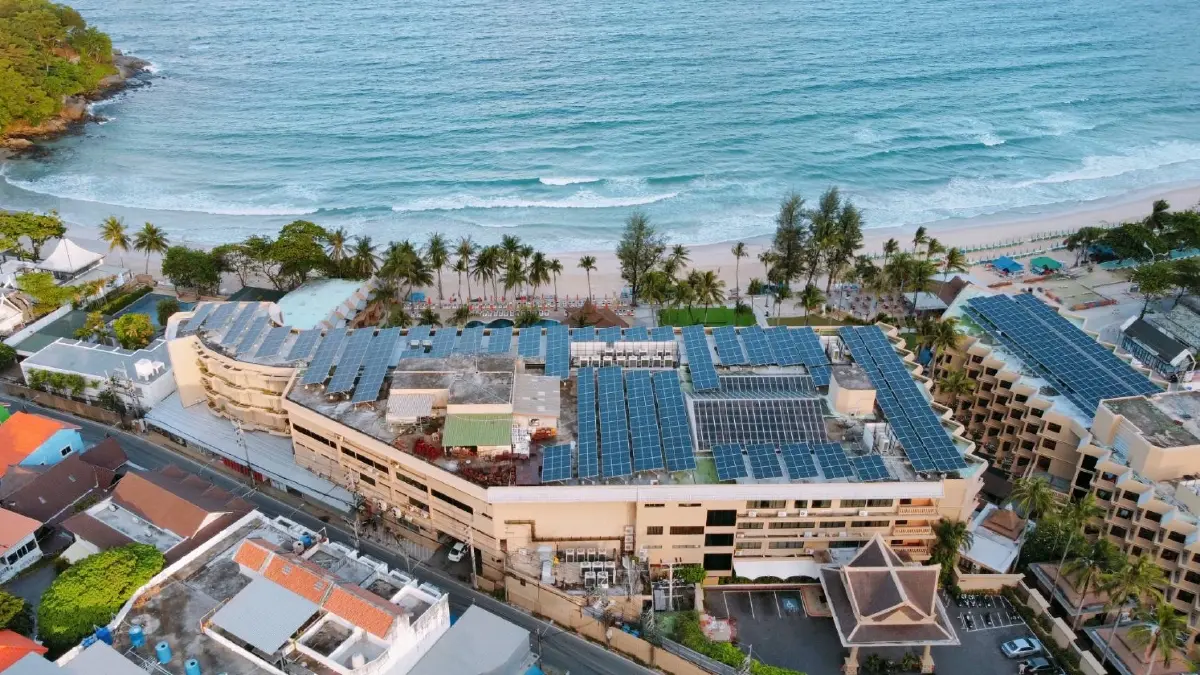
"The Kata Group started in 1980," he recounted, highlighting that at the time, "we" had no experience in the hotel industry whatsoever. His only driving force was a personal love for studying and traveling. Thus, for the first eight years, the business began with just nine small "bamboo bungalows," which gradually expanded to 80, all without taking any bank loans.
"In the beginning, the business was just bamboo huts on a rented plot of land along Kata Beach. A distinctive feature, which remains a charm of 'Kata Group' to this day, was the cooperation from the 'villagers' or the local community. The strength of the community came together to help with construction, designing and building everything with a do-it-yourself mindset. This forged a tight-knit relationship with the local people from the very first day of business."
A crucial turning point occurred when Khun Lek-Permpoon Krairiksh, an executive from Siam Commercial Bank (SCB), visited the property while it was still a bungalow operation. He invited "Kata Group" to become a client of SCB.
Although Mr. Pramookpisitt declined at the time because he did not own the land, he set a condition: "If I am ever able to buy the land, please support me." This marked the beginning of a relationship that has now lasted for nearly 40 years.
"About 30 years ago, I decided to buy the land here. The price was as high as 68 million baht, which was considered very expensive at the time, but Siam Commercial Bank dared to give its full support. After acquiring the land, we tore everything down and built a new hotel building, investing several hundred million baht. From that day to this, we now have nine hotels."
From Mr. Pramookpisitt’s perspective, the Phuket tourism market is highly competitive. To survive, one must always think ahead. Therefore, each hotel under the Kata Group has a different concept to target a diverse range of customers.
For instance, the hotels in Khao Lak and Karon are "Adults Only," not accepting guests under 18 years of age. Concurrently, the group offers family-focused hotels like Phuket Orchid Resort and Pamookkoo Resort, the latter of which features a large water park and over 500 rooms, designed to meet the needs of large families, especially from the Scandinavian and Chinese markets who travel together.
Furthermore, there are hotels for young adults and tourists seeking value for money, such as Pamookkoo Resort, where the average price is just 3,000 baht per night. Guests can use the water park at no extra charge, allowing the hotel to remain competitive in the market even during economic fluctuations.
Clean Energy Leads to Massive Cost Reductions
In driving the business forward, Mr. Pramookpisitt emphasizes operating primarily through sustainability. He views sustainability not just as a new concept, but as something the group has practiced from the beginning. For example, at Beyond Kata, the central hall was designed as a large, open-air Atrium without air conditioning, saving 145,000 baht per month on electricity. Now, with the installation of solar cells on the hotel's roof, electricity costs have been further reduced by over 400,000 baht per month.
In addition to clean energy, the group has invested in a wastewater treatment system within the hotel to prevent any discharge into the sea. This is an example of conducting business in parallel with environmental preservation. He believes it is the duty of all new-generation entrepreneurs to be more conscious of operating their businesses sustainably.
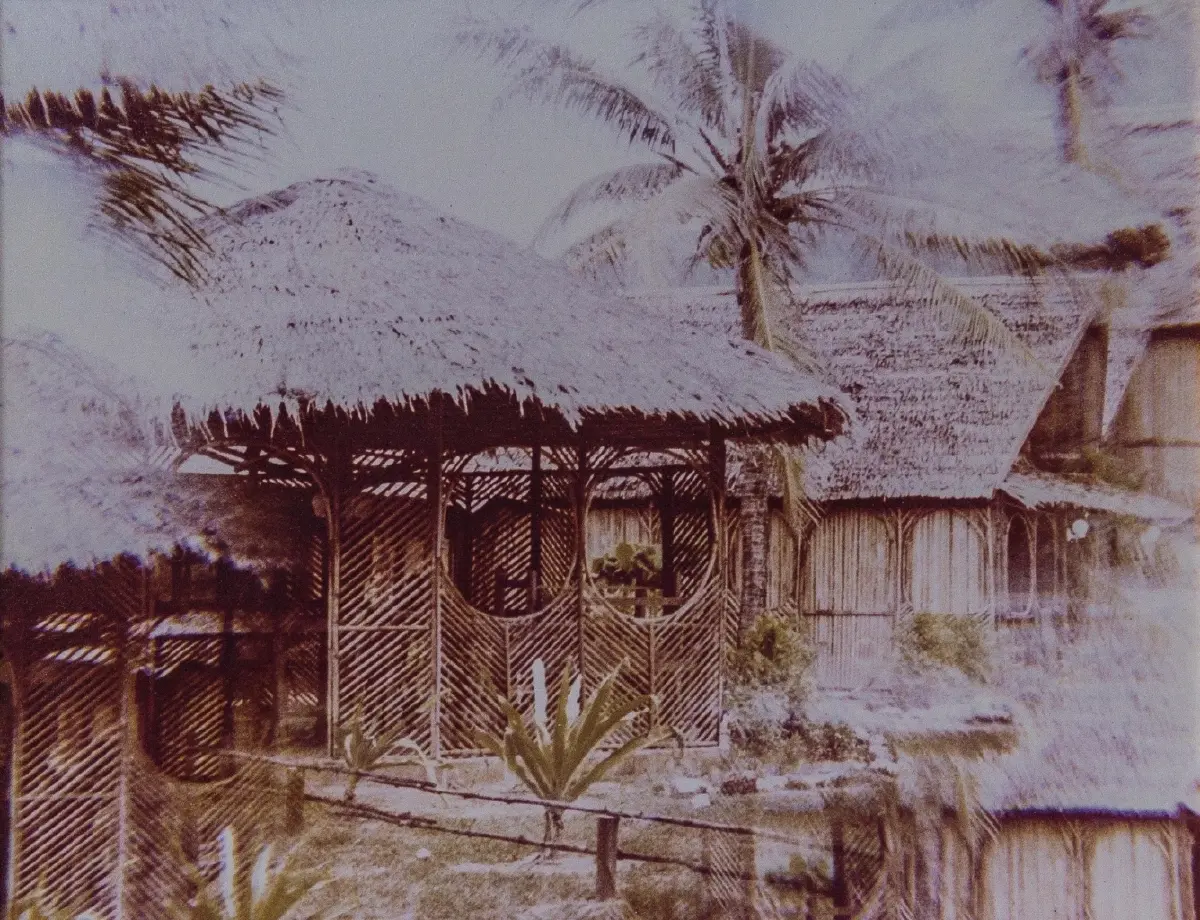
From just nine bamboo bungalows on Kata Beach to becoming a nationally renowned resort group dedicated to "sustainability," "Kata Group Resorts Thailand "and "Beyond Hotels and Resorts "are now setting their sights on a new milestone: becoming an "international brand."
This was the proud declaration of Mr. Pramookpisitt Achariyachai, the Founder & President of Kata Group Resorts Thailand and Beyond Hotels and Resorts. He shared this with the press during the "SCB LIVE SUSTAINABLY IN PHUKET: Our Commitment to Sustainable Hotels" forum, an event held in collaboration with Siam Commercial Bank (SCB) and Yee Teng Hospitality, aimed at helping transform Phuket's hotels into globally recognized sustainable tourism destinations.
Mr. Pramookpisitt recounted the beginnings of "Kata Group," emphasizing that the process of transforming the organization into a sustainable hotel group was both fascinating and challenging.
